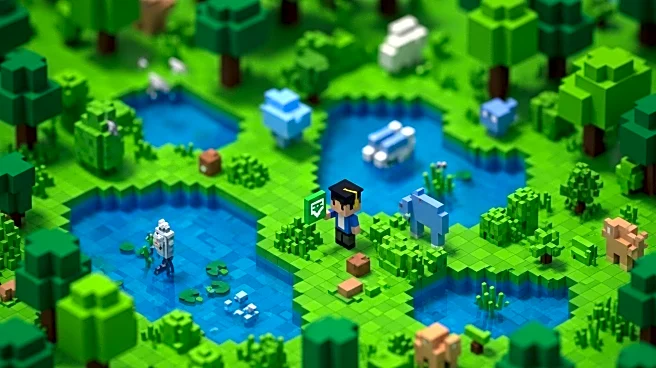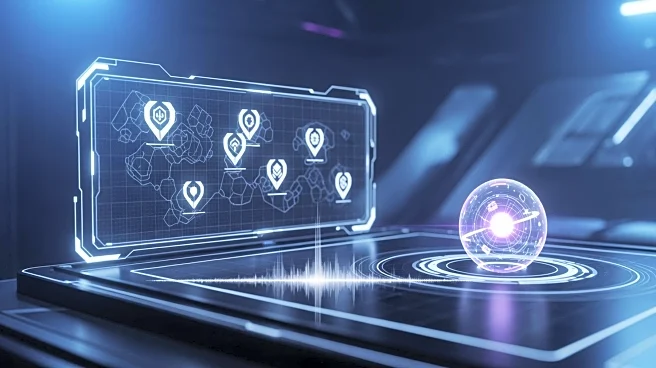What's Happening?
The Environment Agency has introduced a customized version of the popular video game Minecraft, named CoastCraft, to educate children about climate change. This educational tool is designed for students aged 9 to 14 and focuses on teaching them about coastal erosion and flood resilience. The game is set in the landscape of Bude, Cornwall, and challenges players to protect the environment by managing rising sea levels while considering the needs of the local community. The initiative is part of the Environment Agency's £200 million Flood and Coastal Innovation Programme and was developed in collaboration with Minecraft Education and Cornwall Council. The game aims to inspire young people to creatively experiment and find solutions to real-world environmental issues.
Why It's Important?
This initiative is significant as it leverages the widespread popularity of Minecraft to engage young audiences in understanding and addressing climate change. By integrating educational content into a familiar and interactive platform, the game has the potential to enhance environmental awareness among the younger generation. This approach not only educates but also empowers students to think critically about environmental challenges and solutions. The government's investment in such educational tools reflects a commitment to preparing future generations to tackle the impacts of climate change, which is crucial for long-term environmental sustainability and resilience.
What's Next?
The success of CoastCraft could lead to the development of similar educational tools that use gaming to address other environmental and social issues. As students engage with the game, feedback and insights could be used to refine and expand the educational content. Additionally, the initiative may inspire other educational institutions and government bodies to adopt similar strategies, potentially leading to a broader integration of interactive learning tools in educational curricula.
Beyond the Headlines
The use of a game like Minecraft for educational purposes highlights a shift towards more interactive and engaging learning methods. This approach could influence how educational content is delivered in the future, emphasizing the importance of creativity and problem-solving skills. Furthermore, it underscores the role of technology in education, particularly in making complex topics like climate change more accessible and understandable to young audiences.









